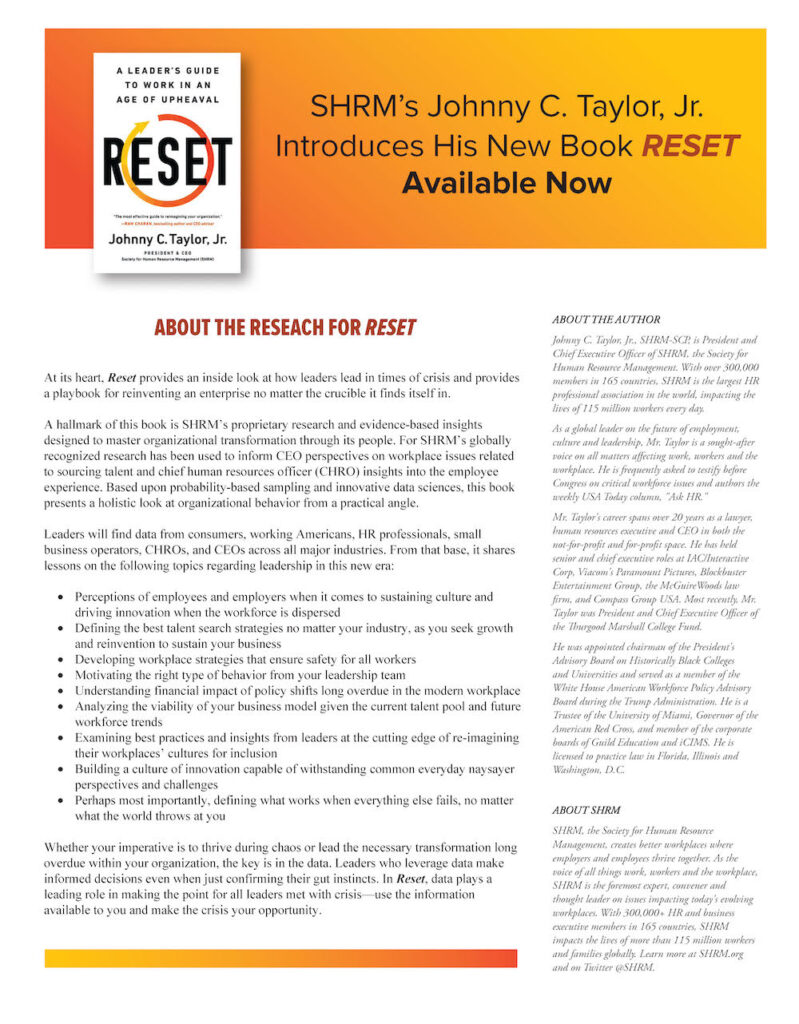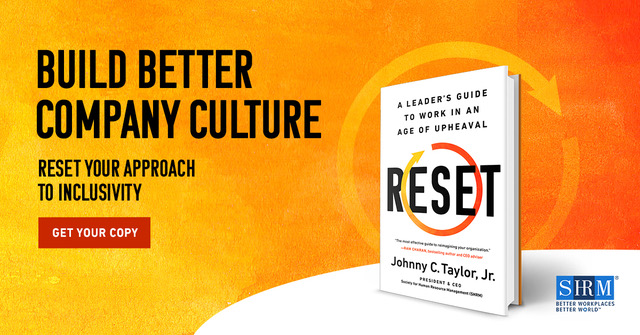Upheaval brings about opportunities to rethink, reset, and restructure your organization.
Here’s what that means for leaders now and in the future.
A MESSAGE TO LEADERS
The challenges of 2020 had me thinking about Leadership Secrets of Attila the Hun and its emphasis on courage as a key trait for leaders. One “Attilaism” states that “Huns must learn early that working through a hardship is an experience that influences them all the days of their lives.” He may as well have been writing about the Covid-19 pandemic.
So, while the pandemic crisis gave me pause, it also offered a rare opportunity to hone my principles of leadership and then put them to work. Crises come and go, but our charge to demonstrate leadership skills is constant. In times such as these, I abide by three key principles:
1. Culture comes first. There is no better test of organizational culture than stressful moments when your workforce comes together—or crumbles. It’s important to take these moments to identify who really drives your guiding principles and who does not. You’ll never have a better opportunity to assess the members of your leadership team for their cultural alignment than when they are put on the spot during a crisis.
2. Data is your greatest friend. My data team at SHRM is there to arm me with the best information. I rely on them more than most CEOs, but numbers do not take the place of leadership. Over the years, I’ve worked with peers whose style is to do everything by instinct and those whose style is to overanalyze. The Covid-19 pandemic, so dependent on daily changing data, provided an opportunity for leaders to assess their own instincts and abilities to make analytical, data-driven decisions. In the future, other such opportunities will arise, where you’ll want to rely on data to guide your way forward.
3. Be “extra.” The CEOs of the world grind and cycle through business crises to make sure our bottom lines are sustainable. During periods of heightened stress, we dive into a focus on our revenues and budgets, often forgetting the impact we have on people’s lives. When I find myself falling into these bad habits in my work relationships, I try to stop and think about a guiding principle imparted by Ram Charan. This renowned executive coach and author advises being “extra” in all you do to serve your people. That means making the extra effort to recognize those who are working through extraordinary circumstances.
I’m often reminded of that old proverb, “Necessity is the mother of invention.” The upheaval of a crisis forces us all to challenge everything we have been thinking and saying about work on virtually every front. Even organizations that think they have it right discover they need to revisit how they do things.
And that’s the silver lining of a crisis.
THE CHIEF HUMAN RESOURCE OFFICER
Many of my CEO colleagues seek out my thoughts on one question: Do I have the right CHRO?
Why? Because the CHRO serves as the chief reinvention officer, exploring how the workforce relates to consumers and determining which skills that workforce can apply in novel ways.
Over the last ten years, SHRM has interviewed CEOs to find out what they consider to be the characteristics of the ideal CHRO. Most described true leaders who epitomized the reinventive spirit. Specifically, CEOs were looking for CHROs who embodied the following five core tenets:
- Push boundaries to power organizational agility
- Unleash digitization
- Embrace perpetual work reinvention
- Rethink culture and leadership
- Elevate HR decision science
Unfortunately, these CEOs seldom found what they were looking for in large part due to a focus on the four Big Wrong R’s of HR:
- Rules. They approach every problem with the notion of following rules rather than thinking about how to design a solution. Later, they assess compliance in terms of whether rules were followed.
- Roles. Every discussion of an issue starts with the dreaded “who’s in charge here?” determination of roles and responsibilities. If your CHRO makes such an unspoken call for validation in order to solidify their own authority, it’s time to consider a change
- Relationships. Not every problem-solving opportunity has to begin with relationships and their dynamics.
- Righteousness. here is endless debate over who is right, forgoing core collaboration that accounts for other perspectives.
Fewer than one in four CEOs have CHROs on their team who apply the Big Right R’s:
- Results. The basis of every activity is to deliver results for the organization, which, in turn, delivers results for people. This may mean talent management, training programs, and succession strategies.
- Reconnaissance. Data and information are leveraged to advance organizational objectives. Today, this means that application of core analytics enables the CHRO to make decisions about efficiency, effectiveness, and entrepreneurship.
- Resourcefulness. Decisions are based on evidence and concepts of design thinking—a cognitive and strategic practice ap-plied to problem solving. Today, this means the CHRO can think abstractly about new problems and their underlying issues, has the tenacity needed to tackle them, and has the ingenuity to re-solve them.
- Reimagination. Each day starts with an understanding of people matters and an eye toward reinventing the business in the face of competition and existential threats.
LEADERSHIP LESSON: As we look at leadership under a new lens, it’s important to consider the greatest capital for any organization—talent. The organization succeeds not with trite perspectives on unleashing human potential or driving greater growth, but through a deep examination of how the organization reinvents itself regularly through effective talent management. We have all heard the old adage “Never waste a good crisis.” I would offer a friendly amendment: “Make constant reset your friend.”
Excerpted from Reset: A Leaders Guide to Work in an Age of Upheaval, by Johnny C., Taylor, Jr., SHRM President & CEO

